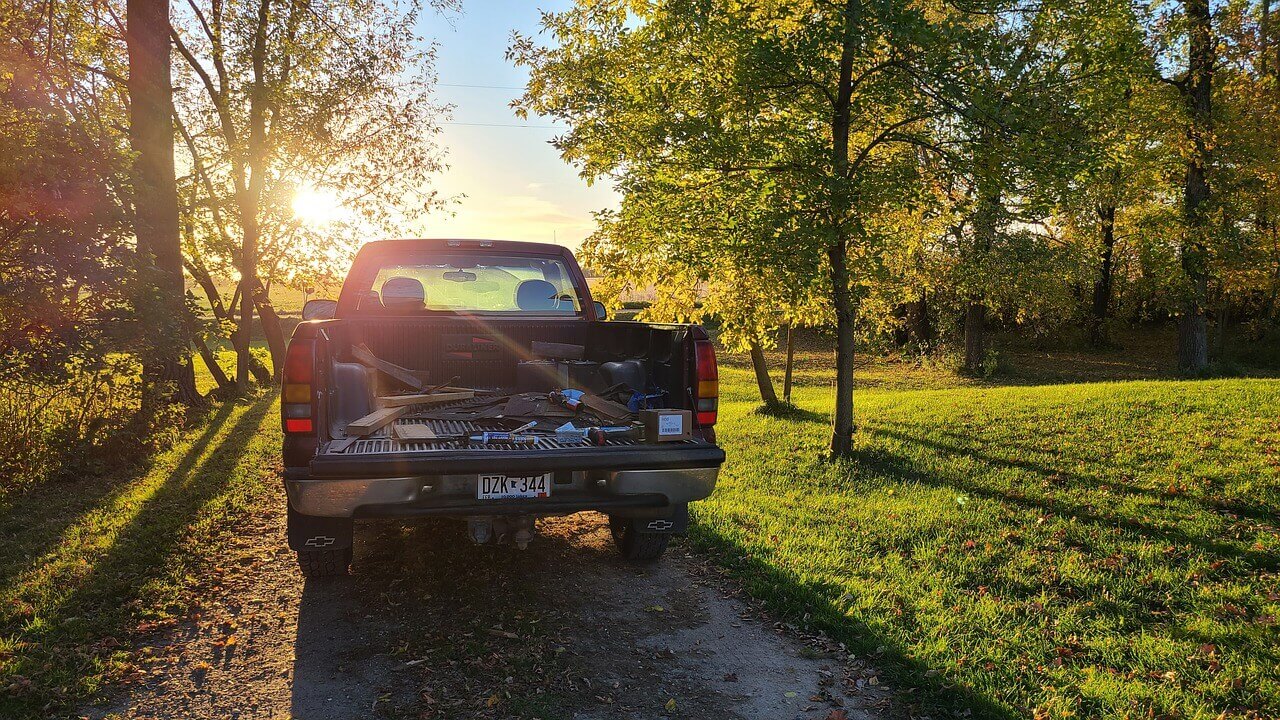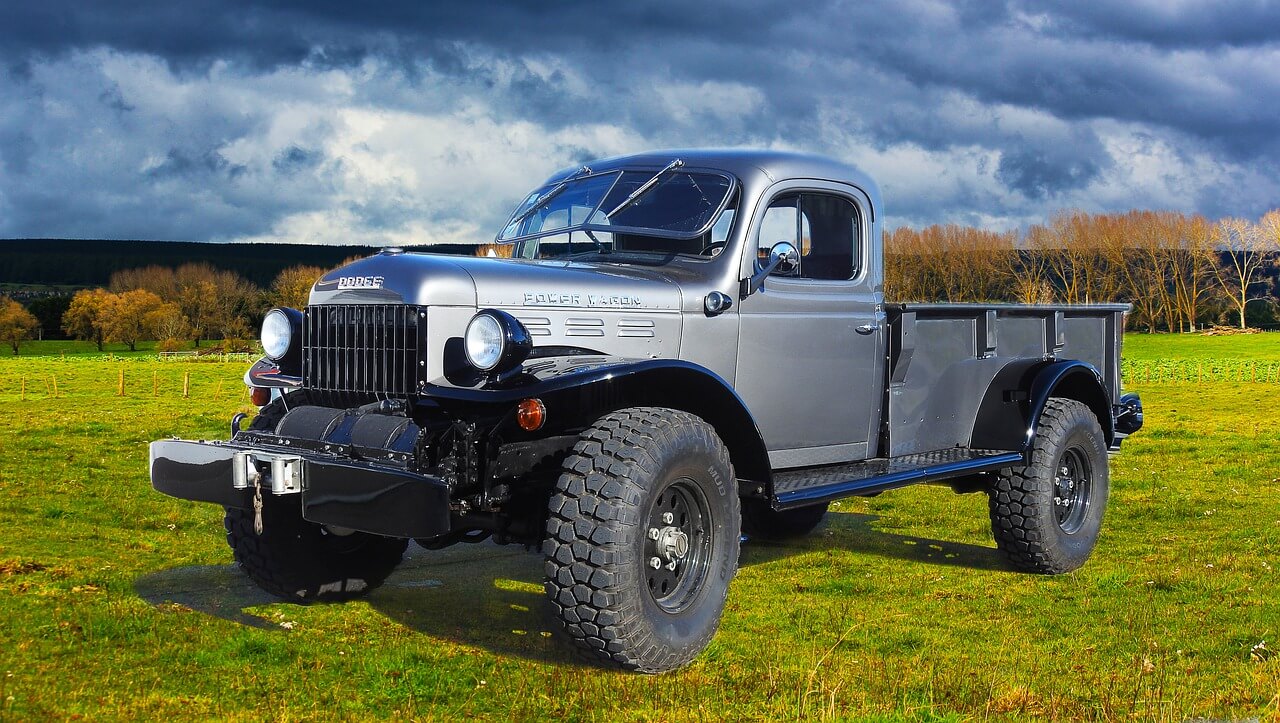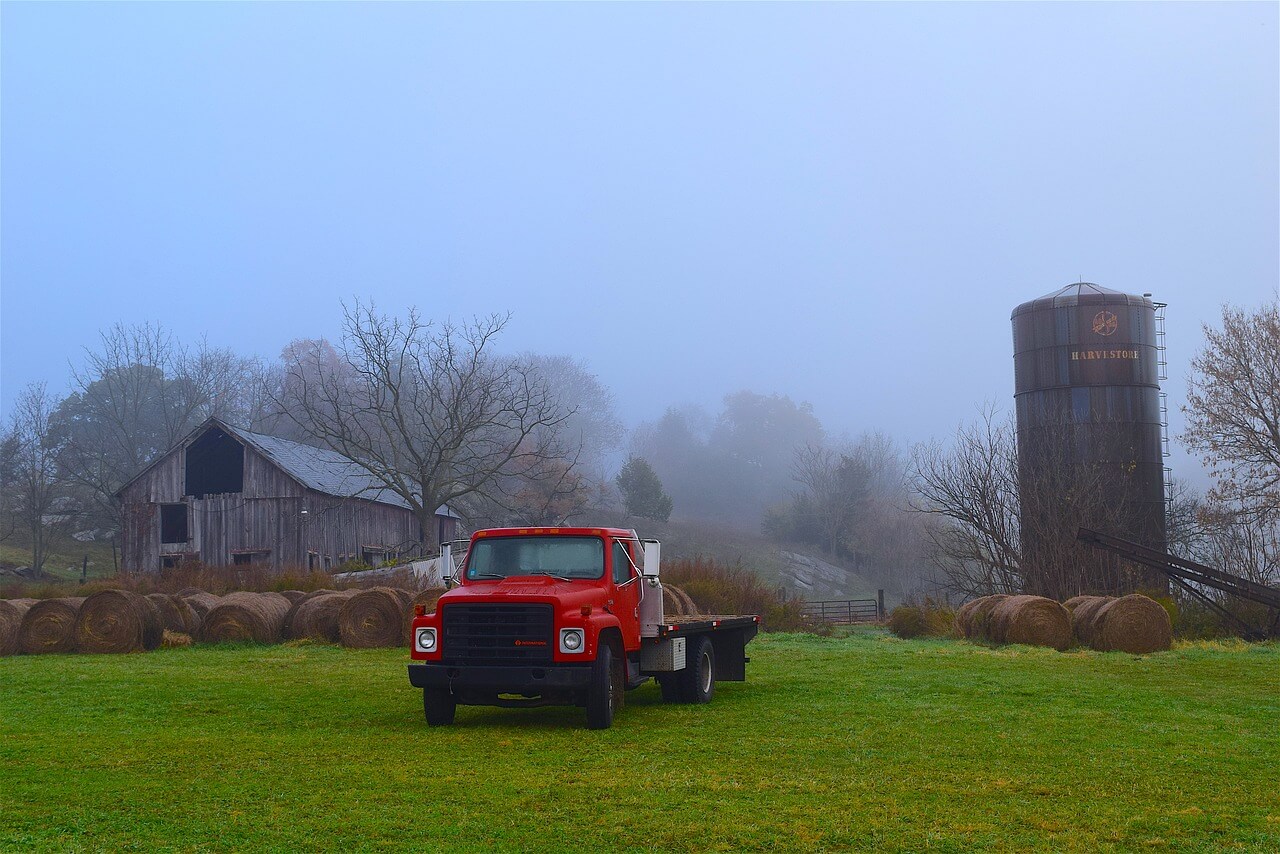Just like a regular car, it is usually necessary to have insurance for your farm truck. To qualify for farm truck insurance, you’ll have to fulfill the necessary criteria set out by your insurer. This typically means that only a low amount of personal usage is allowed.
What You'll Learn Today
Do Agricultural Vehicles Need Insurance?

When finding out what insurance you need for your agricultural vehicle, it is best to get information directly from experts in your area.
Each state can have slightly different rules. However, if you are going to drive your agricultural vehicle on a public highway, then you’ll need to get it insured in case of an accident.
Unfortunately, sometimes accidents are unavoidable so some level of protection is only sensible. Talk to a farm vehicle insurance company to learn what’s best for you.
Before insuring your farm truck, find out what cover you already have included in your farm liability insurance. It could be that you’re already covered for some things and will help reduce the level of insurance needed.
One important element is to calculate just how much personal driving you do with your farm truck. It’s important as it can affect your policy and may have legal implications if you drive on farm plates, so make sure you do the math.
Always shop around as not all policies are the same. Don’t always go for the least expensive option either. It may be that for just a few dollars you could get far better cover.
What are the Different Types of Farm Vehicle Insurance?

Here are the different types of coverage you can get with most insurance companies. Carefully consider what’s needed before making your final choice.
Liability Insurance
You’ll be required to have this as a minimum in most states. It can also be called bodily injury or property damage liability insurance or coverage.
It protects other people involved in an accident. So if you collide with another vehicle, it protects them by paying for the damage to their vehicle or for personal injury caused in the accident.
Collision Insurance
If you have an accident with another vehicle, this will pay for the repairs to your vehicle and trailer if you were pulling one.
Comprehensive Insurance
If your vehicle is damaged by something other than hitting or being hit by another vehicle, this insurance would cover your repair bills. For example, if the damage is caused by bad weather, an animal on the road, vandalism, and so on.
Personal Injury Insurance
This will help pay for medical bills and any loss of earning that you suffer as the result of an accident.
Gap Insurance
If your truck is totaled beyond repair, then this insurance covers the difference between the amount you receive for your damaged vehicle and the money you owe if it is still under a loan or other finance agreement.
Uninsured Motorist Insurance
If you’re involved in an accident with another vehicle and the driver of that vehicle has no insurance, this will cover you.
Underinsured Motorist Insurance
This is similar to uninsured motorist cover but pays your medical costs if the driver of the other vehicle hasn’t got sufficient insurance.
Tip: By choosing to combine your farm insurance with your farm truck insurance, you can take out a multi-insurance policy that may reduce the amount you pay, compared to taking them out individually.
How Much Does Farm Truck Insurance Cost?
The amount your farm truck insurance costs will depend on a whole host of factors, including:
- Your vehicle – its value, age, size, engine capacity, and so on.
- You – your age, experience, and any driving misdemeanors.
- Policy – the type of policy you choose to take out and what it covers.
- Location – where you live. As an example, in a state that is prone to flooding, comprehensive cover may be more expensive due to there being a higher risk of damage to your vehicle in the event of a flood.
- Payment Frequency – by paying in a single annual payment, you can save money over paying by monthly installments.
- Insurance Company – each insurance company has its own rates and available options.
How to Get Cheaper Agricultural Truck Insurance?

None of us want to pay more than we have to, so what are some good ways of getting cheaper agricultural truck insurance?
- Get Multiple Quotes – Always get at least three quotes from different insurers to help you find the most competitive quote.
- Know the Regulations – Rules change, so ensure you know what the current legal requirements are by checking out the farm regulations.
- Clean Licence and History – If you have any previous accidents or convictions for driving-related misdemeanors, then your premiums will be higher.
- Experience – The more experience you have and the longer you have maintained a clean motoring history, the less your premiums will be.
- Get What You Need – Make sure you only pay for what you actually need. Look at the small print, and if you see things you don’t need coverage for, tell your insurance agent. However, be sure that what you are removing you really don’t need!
- Pay Annually – By paying your entire insurance in one payment, you can reduce the overall annual cost.
- Raise the Deductible – If you’re a careful driver, then you may wish to consider reducing the amount of deductible payable by you in the event of an accident. This will help to reduce your annual premium. Make sure the amount of deductible you choose is affordable should the worst happen.
- Combine Insurance – As I mentioned earlier, if you combine your farm insurance and farm vehicle insurance together, you can often reduce the overall price compared to paying for them separately.
Do I Need Insurance To Drive A Tractor On The Road?
If you’re only going to be using your tractor on your own land where it does not travel on a public highway, then there may be no legal requirement to insure it. However, in most states, it is now normally mandatory to have third-party liability insurance as a minimum.
By taking out this insurance, you will be covered (subject to the conditions stipulated in the insurance) for any damage caused by your tractor to another person or their property. Meaning you won’t have to pay damages out of your own pocket.
If your tractor is going to go on the highway at all, you will definitely require insurance. What is covered by that insurance can be decided by you, as with farm trucks as we described above.
Having insurance can help you to pay for repair bills if your tractor is involved in an accident or breaks down. It will also pay for damages to people or property if you are found liable.
Injuries caused while using a tractor are unfortunately all too common. You can get insurance to cover against this that will pay for any medical bills for yourself or other family members if they become injured by the tractor. It can also pay out a lump sum in the event of death.
Tractors commonly tip over while in operation from use on slopes, pulling or lifting heavy or uneven loads.
Another consideration is theft, accidental or malicious damage that could happen even if your tractor never leaves your property.
The average cost of tractor insurance in 2021 is between $5,000 and $12,000 per year, depending on the type of cover you choose.
In this video, you can see how to prevent the most commonly fatal tractor accident, rollovers:
Do Agricultural Vehicles Need Road Tax?
The need for agricultural vehicles to have road tax varies from state to state and also depends on factors including:
- Vehicle weight
- Number of axles
- Which states the vehicle will be driven in
- Annual mileage
- Where the vehicle is driven (private land or public highway)
To find out the exact regulations within your area, contact your local DMV (Department of Motor Vehicles) or equivalent agency.
Conclusion
Having third-party insurance for any vehicle on your farm is, if not mandatory, then at least a good idea.
One of the biggest problems with insurance is the high costs. Remember that these can be reduced by following the information given.
There are many specialist farm vehicle insurers who will not only provide you with the insurance you need but also advise you. This will help to make sure that you’re covered with what is necessary but no more.
Drive carefully and stay safe!
Please note that this article is meant only as an overview and is in no way meant to reflect the full facts, regulations, or legislation regarding any legal aspects mentioned at any level. Complete information must be sought from the appropriate official bodies.
We have more articles about farm trucks along with many other interesting topics on our site. Take a look to find out more.